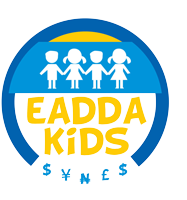Words are powerful.
Often times we don’t stop to think about the exact meaning of what we are saying.
After all most of the time we are too busy to analyze everything that comes out of our mouth. Can you imagine if we did have to stop to review each sentence!
Yet, there are times when we really do need to stop and focus on what words we are using and the meaning that accompanies them.
One of these times is when we are informing our kids that we “can’t afford” something.
“Can’t afford” seems to say we have no choice, that a lack mentality is necessary and that we are poor. Yet many times it really is more of a choice that we are making with our money, instead of a reality that we don’t have any money.
Finding the right words to use can make a world of difference in how your child views money and the possibilities that can come from money.
The following are two things to keep in mind when deciding what to say when talking to your kids about money.
Reality vs. Choice
Many times when we think about not being able to afford something it has more to do with choosing what to spend our money on. For example: your kid wants a brand pair of jeans. You have the money to buy the jean, but you prefer to pay the car payment, or go on vacation or to be able to eat out more than once a month.
We all make decisions on what to spend money on based on what we value and need in life. So instead of saying “we don’t have the money” say “We choose to spend our money elsewhere”. This is a powerful differentiation not just for our kids but for you as well.
This will teach our kids that we must decide where to spend money based on what we want and need. Not what society wants or what we would do if we could manage to grow a money tree.
It is important to teach our kids that we must prioritize our money so we can get the things we desire the most.
Another approach to this involves teaching them that they too can contribute to their own wants. It is not just about mom and dad’s money. For example, if your child wants something that you have not budgeted for or are not willing to spend on you can say:
“This is not something I want to spend money on, but you are more than welcome to buy it with your own money.”
With this approach they learn you have to decide where to spend money, and they can learn to save for things that they value and want. You may also see that their need for an item quickly changes when they have to spend their own money. A once must have toy might quickly become a distant memory.
Focus on the Money
The next thing to keep in mind when selecting your words is to keep the focus on the money and not the child. Avoid saying things such as “You always want” or “You cost too much”. It is not your child that is a problem, but the correct allocation of resources or even their lack of understanding the value of money.
This is a hard one in that most of these comments come out when we are stressed, rushed and not in a place where we can have a meaningful conversation. So the next time you are at the store and your child asks for something, fall back to the basic “we choose not to spend money on this” and leave it at that.
If you feel that they really do need a better understanding of the issue or that you want to use it as a teaching moment you can always go back and address the topic at a more appropriate time.
Remember the words we use are equally as powerful as what we are attempting to teach, so select your words wisely and your kids will grow up with the right money mindset!
Culled from: http://kidmoney.about.com/od/teachingchildren/fl/Selecting-the-Right-Words-to-Teach-our-Kids-about-Money-Mindset.htm

0 Comments